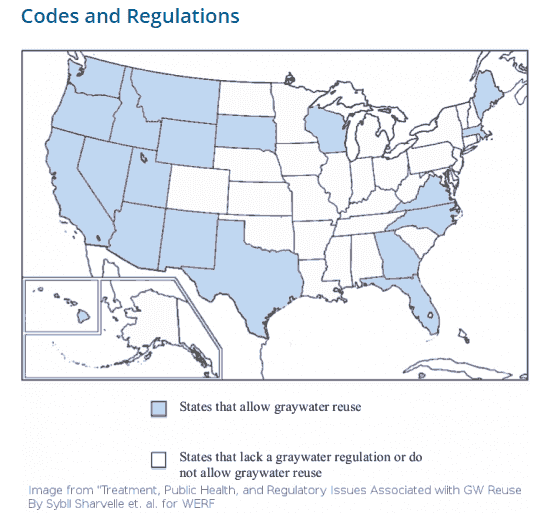April 10, 2024 — With a bipartisan bill making its way through the state legislature, Colorado is on the path to making it easier for homes and businesses to use “graywater.”
Water that goes down the shower, bathroom sink, or even washing machine is considered graywater. It’s already been used once but is much cleaner than the water from the toilet (which is called “blackwater”). Graywater can be safely reused to water lawns or flush toilets.
Key Provisions of the Bill (HB24-1362, Measures to Incentivize Graywater Use).
- Statewide Authorization of Graywater Use: The bill authorizes the installation of graywater treatment works and the use of graywater across Colorado. It specifies that individuals may install and use graywater treatment systems in accordance with state regulations, except where local governments decide otherwise.
- Local Government Opt-Out: Local governments (boards of county commissioners or municipal governing bodies) have the option to prohibit the installation and use of graywater treatment works or specific categories of graywater use within their jurisdictions. They are required to notify the state’s division of administration in the department of public health and environment about any such prohibitions.
- Tax Incentives: To promote the installation of graywater treatment systems within residential buildings for indoor water reuse, the bill introduces a state income tax credit. Taxpayers can claim a credit of up to 50% of the installation cost or up to $5,000, whichever is less.
- Local Government Responsibilities: Local governments that do not prohibit graywater systems are tasked with adopting building codes to prevent graywater from contaminating potable water systems. They must also report to local water utilities about planned installations of graywater systems that require backflow prevention devices.
- Subsequent Authorization: Local governments that initially opt-out by prohibiting graywater use can later authorize it by adopting a resolution or ordinance. They must then promptly notify the division of administration in the department of public health and environment of this change.
- New Construction Projects: Unless local governments decide otherwise, the installation of indoor graywater treatment works is only permitted in new construction projects.
- Effective Date: The act is set to take effect on January 1, 2026. However, if a referendum petition is filed against the act within ninety days after the final adjournment of the general assembly, it will only take effect if approved by the people in the November 2024 general election.
This legislation represents a comprehensive approach to promoting the use of graywater in Colorado, balancing statewide incentives with the ability for local governments to maintain control over environmental and public health concerns within their jurisdictions.


Resources for How to Use Graywater.
Greywater Action – For a Sustainable Water Culture is a “collaborative of educators who teach residents and tradespeople about affordable and simple household water systems that dramatically reduce water use and foster sustainable cultures of water.” The group offers teaching tools , workshops and an online FAQ
, workshops and an online FAQ .
.
California’s Water Wise Group, Inc . estimates that each household using graywater can save up to 40,000 gallons of water each year.
. estimates that each household using graywater can save up to 40,000 gallons of water each year.
Bill Tracking.
The bill passed the Colorado Assembly House on April 5, 2024. It was introduced into the Senate on April 8, and will be heard by the Senate Agriculture & Natural Resources committee on April 18. Full details are published on the General Assembly’s website.

